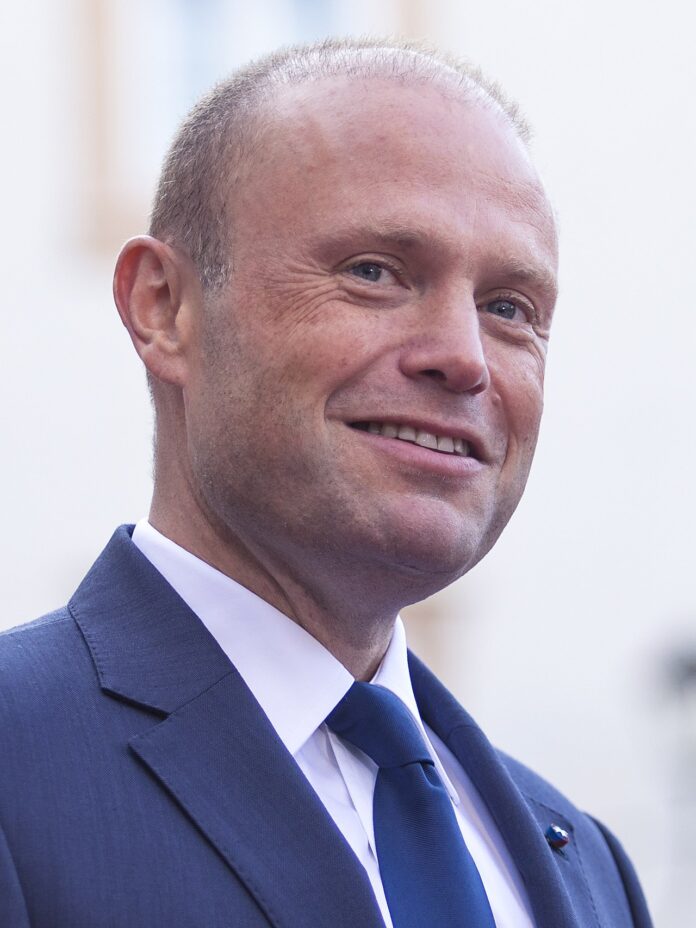A significant chapter in Maltese political history has drawn closer to resolution as the magisterial inquiry into former Prime Minister Joseph Muscat and other ministers’ involvement in the Vitals deal to privatize three state hospitals reached its conclusion.
The court heard on Tuesday that Attorney General Victoria Buttigieg must now analyze the inquiry and the 78 boxes of evidence it contains to determine whether to file criminal charges against those named in the investigation.
Joseph Muscat Ex-Prime Minister of Malta
Joseph Muscat, who has spent the past year embroiled in legal battles related to the inquiry, characterized it as a personal vendetta. He accused the magistrate leading the inquiry, Gabriella Vella, of waging war against him and the Labour Party.
Joseph Muscat was 13th Prime Minister of Malta who served the term in 2020.
“The institutions are working – working against Labourites,” Muscat declared during a press conference.
Despite expressing certainty that he would face criminal charges as a result of the probe, he maintained that he had nothing to fear.
“If justice exists, I will be a free man and then receive compensation for damages suffered,” he asserted. “I know I did nothing wrong.”
Prime Minister Robert Abela also criticized the timing of the inquiry’s conclusions, suggesting that they were strategically released to coincide with the party’s campaign for the upcoming MEP elections on June 8.
Following Tuesday’s court session, Abela supported the call by NGO Repubblika to make the inquiry conclusions public, emphasizing the importance of transparency.
Opposition leader Bernard Grech condemned both Muscat and Abela for attempting to impede the wheels of justice.
“They are attacking our country’s institutions because they are working,” Grech remarked in a video message. “Justice must be done whether you are the prime minister, an ex-prime minister, or a regular citizen.”
The contents of the inquiry remain confidential, and it is up to Attorney General Victoria Buttigieg to decide whether to publish the inquiry’s proces verbal, its conclusions, or nothing at all. In a similar inquiry into alleged criminal behavior regarding the Panama company Egrant, then-Attorney General Peter Grech had published most of the inquiry’s conclusions.
What is the inquiry about?
The Vitals inquiry, initiated in 2019, aimed to assess whether Muscat or his government ministers committed any crimes in relation to the hospitals deal. Under Muscat’s government, a deal was signed handing over the management of three state hospitals to Vitals Global Healthcare, a newly formed company. Vitals later sold the concession to US healthcare giant Steward.
However, in 2023, a court annulled the deal, citing fraud and the concessionaires’ failure to fulfill contractual obligations. A court of appeal went further, suggesting that top government officials had colluded against the national interest.
Concurrently, a magistrate was investigating the role played by Muscat and his ministers in approving the deal. The probe was triggered by a legal request from NGO Repubblika, which initially named ministers Konrad Mizzi, Chris Cardona, and Edward Scicluna in its request for investigation.
The scope of the inquiry was later expanded, and in January 2022, police raided Joseph Muscat’s home and office, seizing documents and devices as part of the probe.
Joseph Muscat had allegedly received tens of thousands of euros from a company linked to Vitals and Steward. Muscat claims the money was payment for consultancy work unrelated to the hospitals deal.
You may also like
- Unveiling $5.4M Healthcare Fraud: The Case of Adarsh Gupta and the Medicare Scheme
- Tampa Accuse Orchestrated Medicare Fraud Exceeding $70 Million
Battle to Remove Magistrate
Following this report, Joseph Muscat embarked on a year-long legal battle to have the magistrate leading the inquiry removed from the case. He argued that Magistrate Vella had a conflict of interest because her relatives had posted critical comments about him on Facebook. Moreover, he cited various leaks related to the inquiry as evidence that he could not trust the magistrate.
When Joseph Muscat’s initial attempt to have Vella recused failed, his legal team filed a second motion. During Tuesday’s court hearing on this matter, it was revealed that the inquiry had concluded on Thursday, April 24, and was sent to the attorney general’s office the next day.
The timing of these events coincided with the opening of nominations for candidates contesting June’s MEP elections. Both Muscat and Abela seized on this timing, alleging that it was not coincidental.
“It’s a totally vitiated process,” Muscat stated at the press conference. However, when pressed to explain why he believed the magistrate had a conflict of interest, Muscat deferred, stating, “Ask her, not me.”
The former prime minister also expressed regret for having dismissed his then-deputy leader Anġlu Farrugia in late 2012, after Farrugia made similar criticisms of a different magistrate.
“I probably moved too fast,” Joseph Muscat reflected. “I now understand where Anġlu was coming from.”
The inquiry was initiated following an initiative by Repubblika, a Maltese civil society organization.


